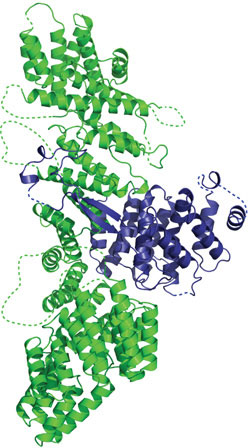
Yale University research links lipid metabolism gene mutations to a hereditary myelin disease, potentially offering insights into controlling multiple sclerosis.
New research from Yale University may shed insight into mechanisms to control the course of multiple sclerosis. Their results point to a role for FAM126A in supporting myelination, an important process in development and also following acute exacerbations in multiple sclerosis.
An inherited disease of myelin marked by slow, progressive neurological impairment is caused by mutations of a gene that controls lipid metabolism, a finding that may shed insight into mechanisms to control the course of multiple sclerosis (MS), a Yale team has found.
Mutations in a single gene, called FAM126A, cause a panoply of pathologies, such as developmental delay, intellectual disability, peripheral neuropathy, and muscle wasting, in addition to congenital cataracts. Until now the precise function of the gene was unknown.
The labs of Yale cell biologists Pietro De Camilli and Karin Reinisch found that the protein encoded by the gene, called hyccin, helps produce a lipid crucial to the formation of the myelin sheaths that surround and protect the axons of neurons throughout the nervous system.
Their labs, working with other groups in the United States, Italy, and Germany, analyzed cells from patients suffering from the disease known as Hypomyelination and Congenital Cataract and found that FAM126A mutations result in the destabilization of an enzyme complex crucial to the production of myelin.
In MS, the course of the disease is critically dependent upon the reformation of myelin sheaths after immune system attacks then destroys them, eventually leading to the death of the neurons. The researchers hypothesize that the lipid that hyccin helps generate may play a key role in creation of myelin sheaths in normal development as well as in recovering MS patients.
Postdoc Jeremy Baskin (now at Cornell) and graduate student Xudong Wu (now at Harvard) led the study in the De Camilli and Reinisch labs, respectively. The research was published November 16 in the journal Nature Cell Biology.
Reference: “The leukodystrophy protein FAM126A (hyccin) regulates PtdIns(4)P synthesis at the plasma membrane” by Jeremy M. Baskin, Xudong Wu, Romain Christiano, Michael S. Oh, Curtis M. Schauder, Elisabetta Gazzerro, Mirko Messa, Simona Baldassari, Stefania Assereto, Roberta Biancheri, Federico Zara, Carlo Minetti, Andrea Raimondi, Mikael Simons, Tobias C. Walther, Karin M. Reinisch and Pietro De Camilli, 16 November 2015, Nature Cell Biology.
DOI: 10.1038/ncb3271

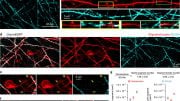
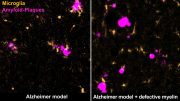

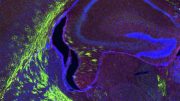

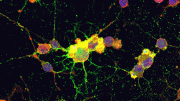

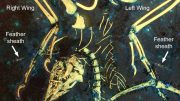
Be the first to comment on "How Genetic Defects in Myelin Formation Cause White Matter Diseases"